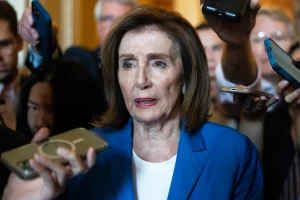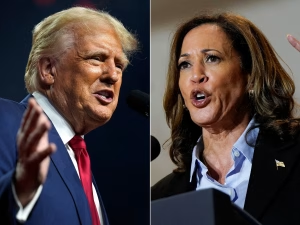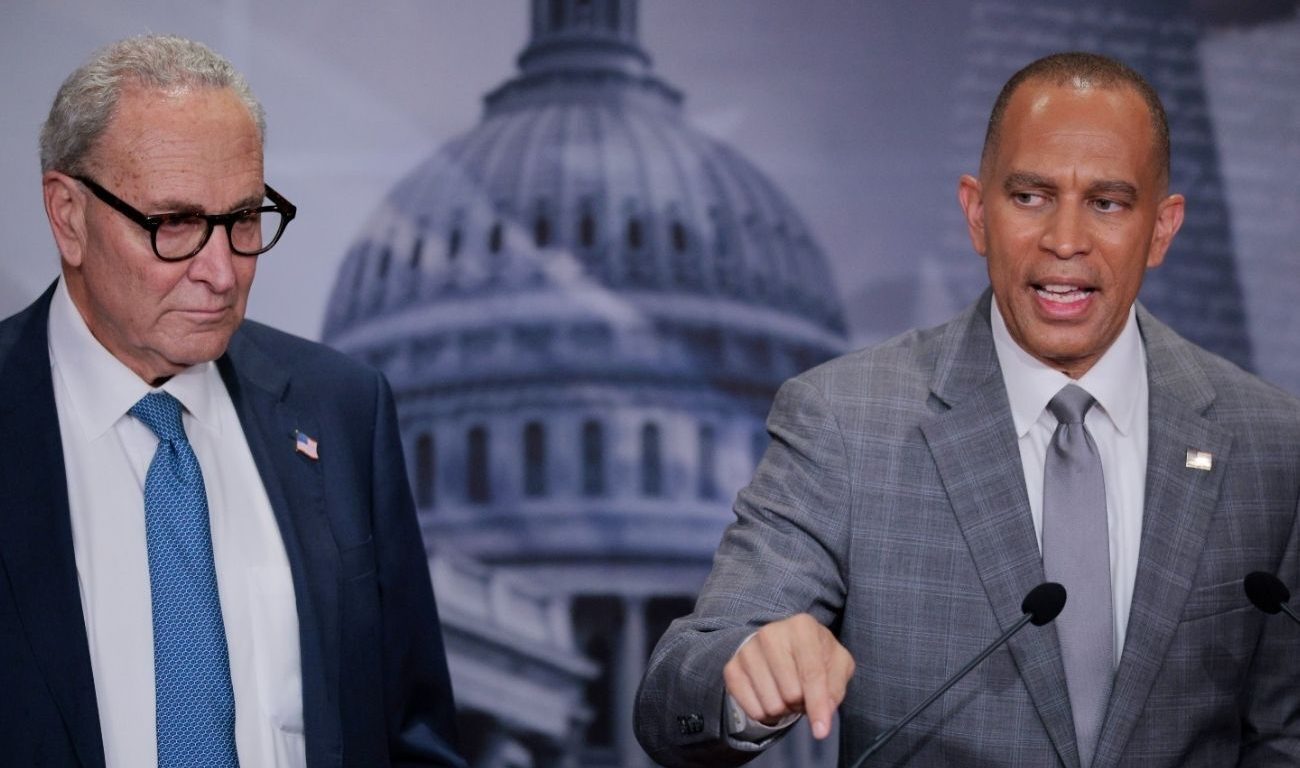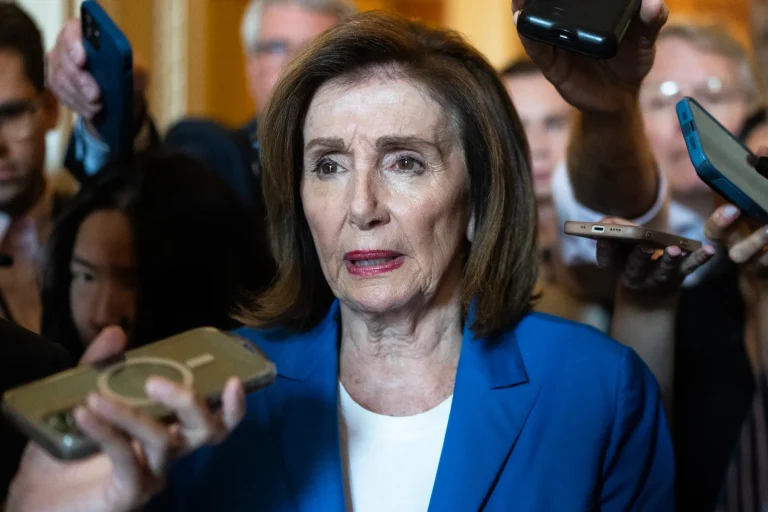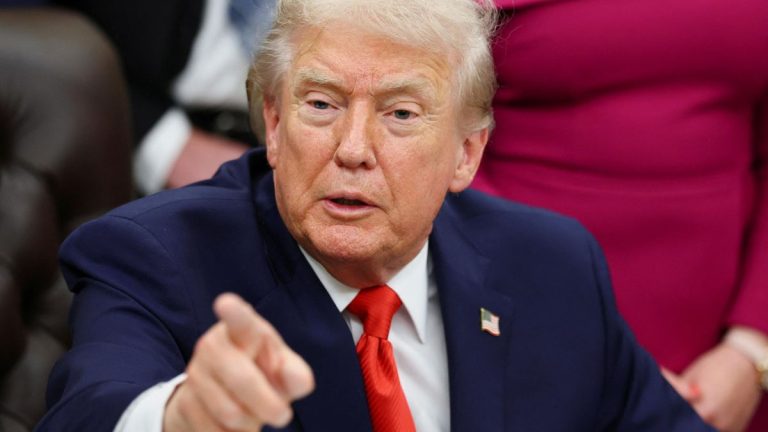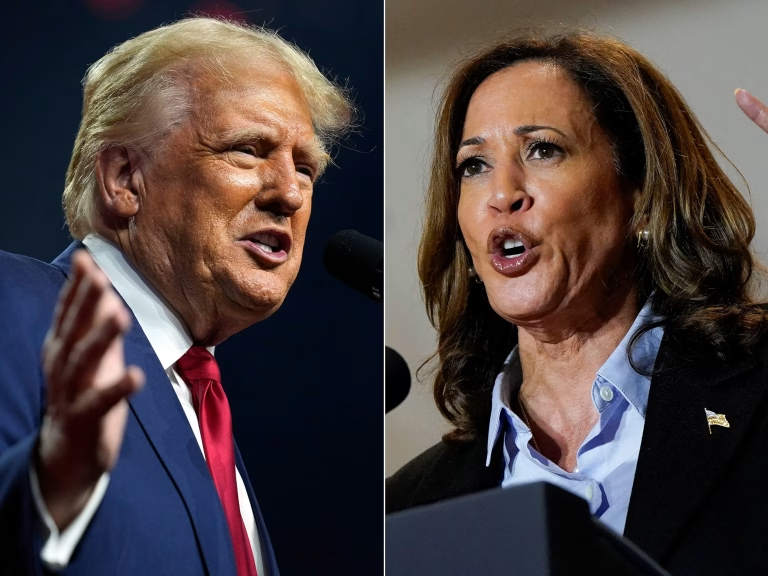House Minority Leader Hakeem Jeffries (D-N.Y.) and Senate Majority Leader Chuck Schumer are facing growing criticism from both inside and outside their party as the government shutdown stretches into its fourth week.
The Democratic leaders have maintained their refusal to support Republican-backed funding bills unless those measures include billions in additional spending on healthcare, climate initiatives, and foreign aid. However, the strategy has begun to draw backlash from unexpected corners — including federal employee unions, budget watchdogs, and some within their own ranks.
The stalemate has left more than one million federal workers without pay and shuttered major parts of the government. Republicans say they have voted multiple times to reopen federal agencies, accusing Democrats of holding the process hostage to secure unrelated spending increases.
CNBC Anchor Confronts Jeffries on-Air
The pressure intensified Monday morning when CNBC’s Squawk Box co-anchor Becky Quick confronted Jeffries over his party’s role in prolonging the shutdown. Quick challenged the Democrat’s defense of expanded healthcare subsidies and his claim that Republicans were refusing to negotiate.
“What you’re asking Republicans to do right now — when they control the White House, the Senate, and the House — is effectively what Democrats could not do when they controlled all three themselves,” Quick said, referring to the expiration of enhanced Obamacare subsidies that Democrats originally designed to lapse after three years.
Jeffries appeared momentarily caught off-guard. “Uh, it’s not a setup beyond what we could do,” he replied. “We continue to believe affordable healthcare must be preserved.”
Quick pressed further, noting that Democrats had intentionally structured the subsidies to expire in 2025 and had not extended them when they had the opportunity. “Now you want Republicans to do something you didn’t do when you were in power?” she asked.
The exchange quickly went viral on social media, amplifying the sense of Democratic disarray.
Union Leaders Break Ranks
Perhaps more damaging for party leadership, the nation’s largest federal employee union — a long-time Democratic ally — publicly urged both sides to end the standoff but placed particular blame on congressional inaction.
“This week, Congress pushed our nation into the fourth week of a full government shutdown — an avoidable crisis that is harming families, communities, and the very institutions that hold our country together,” said Everett Kelley, president of the American Federation of Government Employees (AFGE).
In a sharply worded statement, Kelley demanded an immediate vote on a clean continuing resolution, echoing the position Republicans have advanced for days.
“Both political parties have made their point, and still there is no clear end in sight,” he said. “Today I’m making mine: it’s time to pass a clean continuing resolution and end this shutdown today.”
AFGE represents roughly 820,000 federal and D.C. government employees. The union’s leadership has traditionally aligned with Democratic priorities, but the growing financial strain on furloughed workers has shifted the tone dramatically.
“These are patriotic Americans – parents, caregivers, and veterans – forced to work without pay while struggling to cover rent, groceries, gas, and medicine because of political disagreements in Washington,” Kelley wrote. “That is unacceptable.”
Republicans Push to Reopen
House Speaker Mike Johnson (R-La.) said Monday that Democrats are deliberately extending the shutdown to extract concessions.
“Every Republican in Congress wants to stop this madness desperately,” Johnson said. “We’ve voted more than a dozen times to reopen the government, but Democrats keep blocking it because they’re demanding trillions in new spending — including $200 billion in health benefits for noncitizens.”
Johnson accused Schumer and Jeffries of prioritizing “ideological wish lists” over government workers’ paychecks.
“They’re the ones voting repeatedly to keep the government closed,” he said. “We can’t reopen it without their cooperation.”
The White House, meanwhile, has maintained that the president will not sign any spending bill that fails to include the Democratic funding priorities. Administration officials have defended the position as “necessary investment,” while critics describe it as reckless brinkmanship.
Growing Tensions in the Senate
In the Senate, moderate Democrats have begun to voice discomfort with the party’s shutdown strategy. One unnamed senator told Politico that “there’s growing fatigue in the caucus” and warned that “Republicans are controlling the narrative.”
Several Democratic aides said staffers have been instructed to emphasize Republican “intransigence” in media appearances but privately acknowledge that the tactic may be losing traction.
Sen. Joe Manchin (D-W.Va.), who has broken with party leadership in the past, urged a compromise. “We have to get people back to work,” he said. “Every day we wait, the damage compounds — not just politically, but economically.”
Economists estimate that each week of the shutdown reduces quarterly GDP growth by roughly 0.1 percent, depending on the duration and scope of federal closures.
Public Sentiment Turns Sour
Recent polling suggests public patience is wearing thin. A YouGov survey released Monday found that 52 percent of voters now blame Democrats for the ongoing shutdown, compared with 38 percent who blame Republicans. Among independents, that gap widens to nearly 20 points.
“The fact that a traditionally pro-union party is losing support from federal workers is remarkable,” said pollster Scott Rasmussen. “It underscores how the politics of government shutdowns have shifted under divided government.”
Republicans are seeking to capitalize on that perception. Several House committees plan to hold hearings this week highlighting the shutdown’s impact on small businesses and veterans’ services — key constituencies in upcoming swing-state elections.
Schumer Faces Pressure
Senate Majority Leader Schumer, who is also grappling with falling fundraising numbers and pressure from progressive challengers, has so far declined to alter his strategy. His office issued a brief statement Monday reiterating that “Republicans created this crisis by refusing to protect affordable healthcare and middle-class families.”
But some political analysts warn that narrative may no longer hold.
“Democrats have painted themselves into a corner,” said Georgetown University political scientist Laura Carlson. “When even CNBC anchors are pressing you about contradictions in your policy, it’s a sign your message control is slipping.”
With each passing day, the financial and political costs mount — and the prospect of a prolonged shutdown looms larger.
“The longer this continues,” Carlson added, “the harder it will be for Democrats to reclaim the moral high ground.”

James Jenkins is a celebrated Pulitzer Prize-winning author whose work has reshaped the way readers think about social justice and human rights in America. Raised in Atlanta, Georgia, James grew up in a community that instilled in him both resilience and a strong sense of responsibility toward others. After studying political science and creative writing at Howard University, he worked as a journalist covering civil rights issues before dedicating himself fully to fiction. His novels are known for their sharp, empathetic portraits of marginalized communities and for weaving personal stories with broader political realities. Jenkins’s breakout novel, Shadows of Freedom, won national acclaim for its unflinching look at systemic inequality, while his more recent works explore themes of identity, resilience, and the fight for dignity in the face of oppression. Beyond his novels, James is an active public speaker, lecturing at universities and participating in nonprofit initiatives that support literacy and community empowerment. He believes that storytelling is a way to preserve history and inspire change. When not writing, James enjoys jazz music, mentoring young writers, and traveling with his family to explore cultures and stories around the world.
